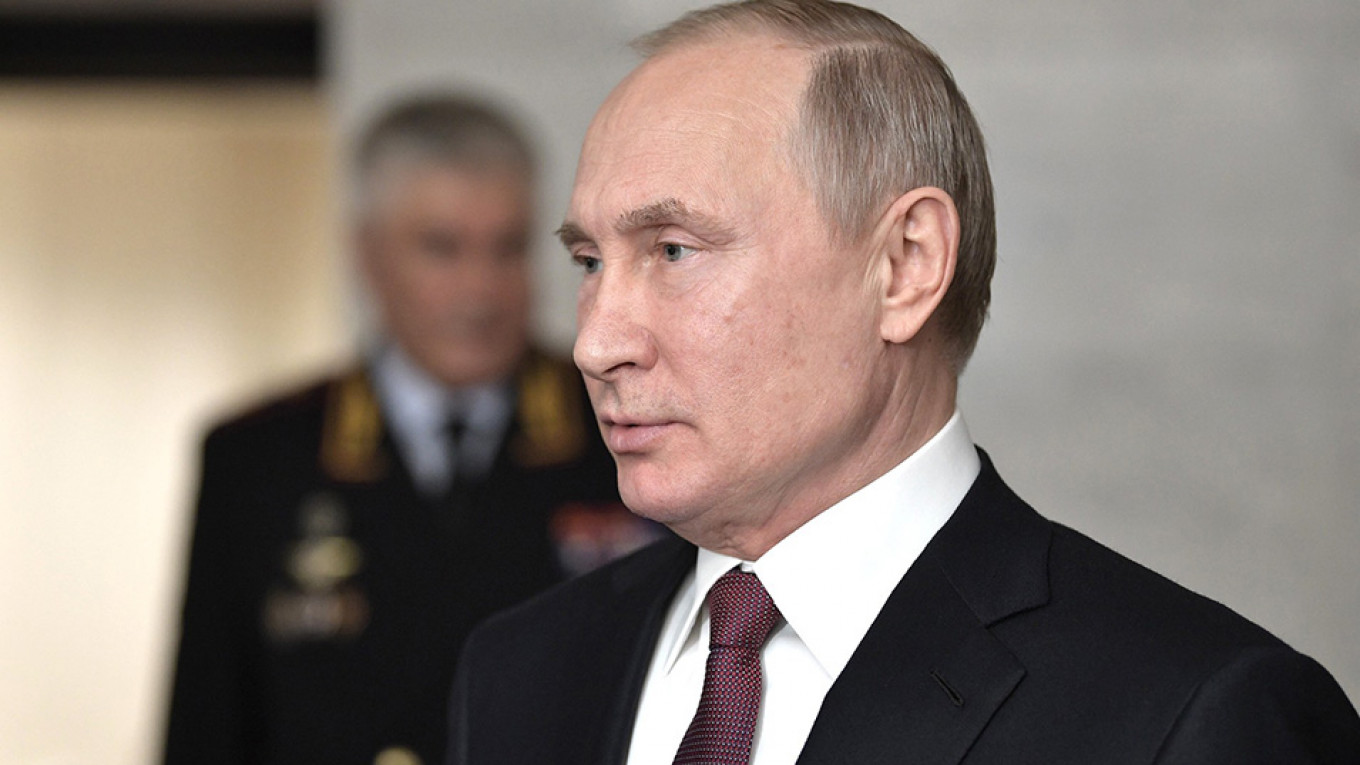Following the United States’ suspension of its participation in the Intermediate-Range Nuclear Forces (INF) Treaty on February 1, Russia has followed suit. The Cold War-era agreement, signed between the U.S. and the Soviet Union and was considered a major safeguard against nuclear war, may possibly come to an end within the next five months.
On Monday, President Vladimir Putin suspended Russia’s compliance with the treaty, blaming Washington for the breakdown. According to Putin’s directives as published by the Kremlin press service, Russia refuses to participate in the treaty until the U.S., “eliminates its earlier violations of its obligations.”
“Using medium-range target missiles and deploying launchers in Romania and Poland that are fit for launching Tomahawk cruise missiles, the U.S. has openly violated these clauses of the Treaty,” Putin said in his State Of The Nation address to Russian lawmakers on February 20. Putin said Russia was ready for talks with the U.S. on disarmament issues, “but we won't knock on the closed door anymore.”
“Russia will have to develop and deploy weapons that can be used not only against areas from which a direct threat will come but also against territories where decision-making centers are located.”
On February 1, the Trump administration suspended the U.S. from the agreement saying, “we will move forward with developing our own military response options” to Russia’s suspected missile developments. The U.S. has long accused Russia of violating the treaty, saying it has developed and deployed prohibited medium-range nuclear missiles.
“We can no longer be restricted by the treaty while Russia shamelessly violates it,” Secretary of State Mike Pompeo said in February when he announced the decision to suspend the accord, declaring that “countries must be held accountable when they break the rules.”
The U.S. is threatening to completely terminate the treaty before August unless Russia destroys its growing arsenal of intermediate-range missiles and launchers.
Signed in 1987 during the Ronald Regan administration, the INF treaty banned two former Cold War foes, namely the United States and the Soviet Union, from developing and deploying any ground-based missiles that could travel between 500 and 5,500 kilometers, or about 300 to 3,400 miles. This constraint was considered a major milestone in arms control during a time when confrontation between the two global superpowers ran high, helping reduce the risk of a nuclear war.
“We are very much concerned that after the decision of the United States to withdraw from INF, missiles could be deployed on the territory of European allies,” Sputnik quoted Russian Ambassador to the U.S. Anatoly Antonov as saying on Monday during remarks at the Stimson Center in Washington, D.C.
“We will be forced to deploy our missiles, and here you will see that the whole territory of European countries will be covered.”
Yet the Trump administration maintains that one of the reasons it pulled the U.S. out of the INF is because China – which was never a signatory to the treaty – has in recent decades developed military capabilities that put the U.S. at a disadvantage.
Although the Cold War may be over, the relationship between Russia and the United States has soured in recent years, mostly due to the alleged interference in the 2016 U.S. presidential election – an accusation the Kremlin has repeatedly denied – and what Washington says was a Russian military intervention in Ukraine along with annexation of the Crimean peninsula. With the end of the INF treaty, Russia and the U.S. will be able to move ahead rapidly with the development and deployment of short and medium-range ground-launched nuclear-capable missiles. As a result, the world will be left without any limits on two major nuclear arsenals.







 Azerbaijan and Armenia started the process of demarcation of their border on Tuesday, with the installation of the first border markers based on ge...
Azerbaijan and Armenia started the process of demarcation of their border on Tuesday, with the installation of the first border markers based on ge...
 Armenian sappers commenced on Monday mine-clearance operations in the territories adjacent to the Saint Mary Church in village of Voskepar (Armenia...
Armenian sappers commenced on Monday mine-clearance operations in the territories adjacent to the Saint Mary Church in village of Voskepar (Armenia...
 Iran has refuted reports of alleged damage to Shimon Peres Negev Nuclear Research Centre located southeast of Dimona, Israel, during the recent air...
Iran has refuted reports of alleged damage to Shimon Peres Negev Nuclear Research Centre located southeast of Dimona, Israel, during the recent air...
 Iran’s Foreign Minister, Hossein Amir-Abdollahian, has labeled a foiled Israeli drone attack in certain parts of the country as a "failure" for Isr...
Iran’s Foreign Minister, Hossein Amir-Abdollahian, has labeled a foiled Israeli drone attack in certain parts of the country as a "failure" for Isr...



